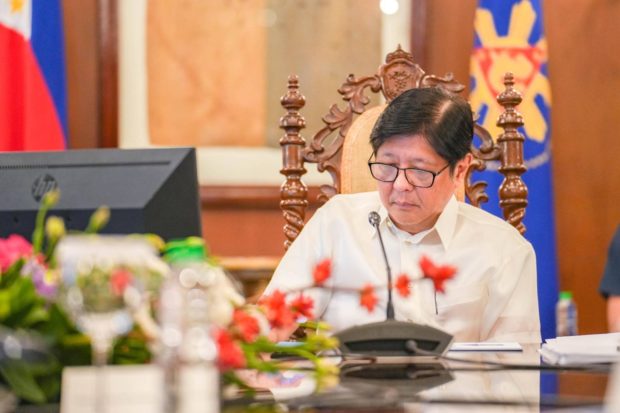Marcos says digitalization of gov’t processes, transactions to help curb smuggling

FILE PHOTO: President Ferdinand Marcos, Jr. | PHOTO: official facebook page of President Marcos
MANILA, Philippines — President Ferdinand “Bongbong” Marcos Jr. is pushing for the digitalization of government transactions, particularly at the Bureau of Customs (BOC), to arrest rampant smuggling.
According to the Presidential Communications Office (PCO) on Thursday, Marcos noted that more modernized data and transaction handling could aid the nation’s economic development.
He added that in solving the problem of smuggling in the country, it might be helpful to look into successful approaches being employed by several countries and apply them to the Philippines.
The President said digitalization of the BOC is “going to be an important, important part of that.”
“The President also called for drastic bureaucratic reforms to fight smuggling, which he said threatens local industries and affects government tax collection,” the PCO said.
One of the recommendations raised was opening up the database to the BOC and to the Department of Agriculture (DA) to ensure the efficient sharing of information.
The PCO said the DA and BOC have a data-sharing agreement (DSA) that seeks to facilitate the exchange of information on traded agricultural products.
“The DSA, which is governed by the Philippines’ Data Privacy Act, is one of the pacts forged between the DA and BOC to ensure that local agri-fishery products remain competitive,” Malacañang said.
Through the program, each agency can promptly share and act upon critical and intelligence information.
Marcos has repeatedly highlighted the importance of digitalization, particularly as the country emerges from the coronavirus pandemic and as the administration pushes its development agenda.
The government, Marcos said, also recognizes the importance of digitalization as a key driver for long-term development and for the economic transformation of the post-pandemic global economy.
The President has also put a premium on the role of micro, small and medium enterprises (MSMEs) in the administration’s digitalization efforts.
The administration, Marcos said, is on track to empower and enable MSMEs to participate in the digital economy and narrow the digital divide.